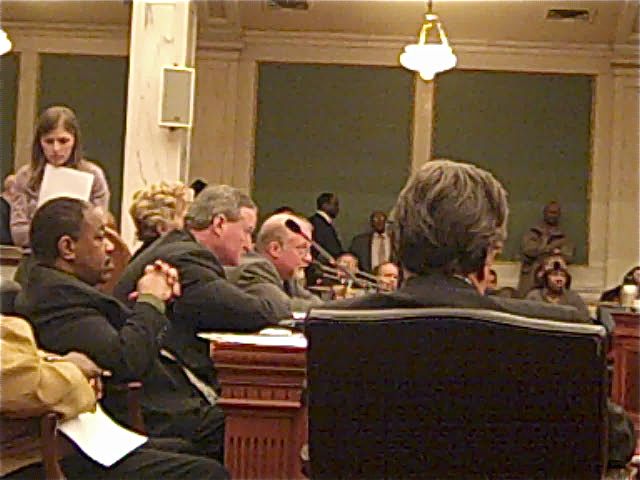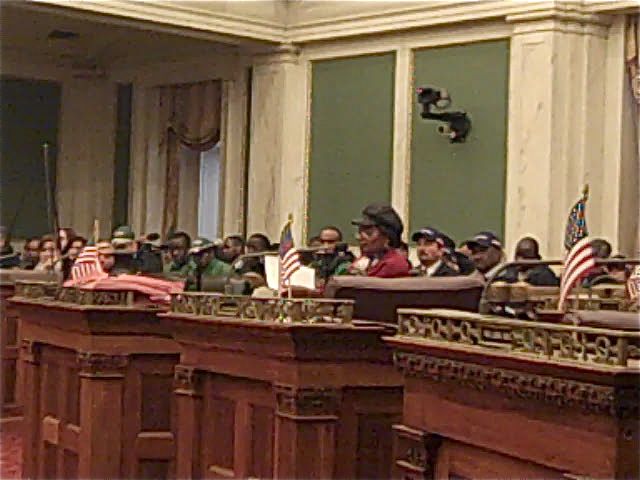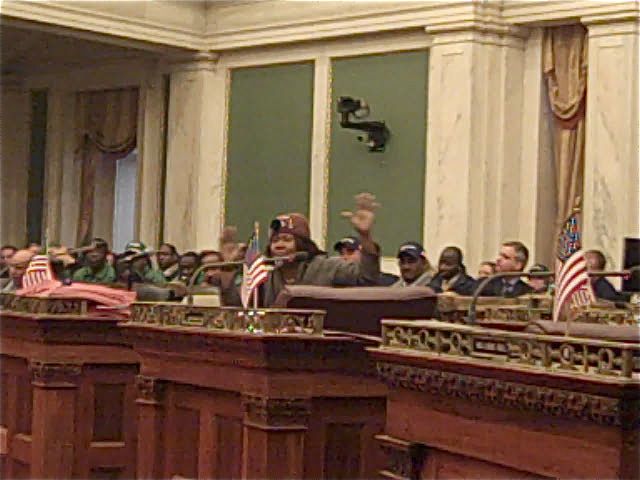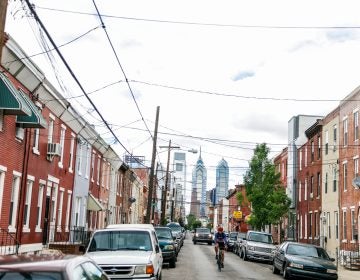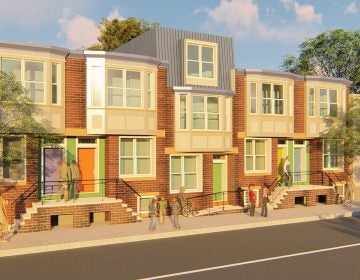Bill that advocates say would protect Point Breeze is held. Critics argue it would stifle development
Would a one-year moratorium on any addition, rooftop deck or new structure exceeding two stories in Point Breeze protect the character of the neighborhood and help keep living there affordable? Or would it unfairly suppress property values and opportunities for the neighborhood to grow?
Those were the key questions brought before City Council’s Rules Committee Wednesday during a hearing on a legislative proposal that has divided the South Philadelphia community.
People on both sides of the issue gave passionate testimony that lasted about two hours.
Concerned Citizens of Point Breeze President Betty Beaufort said that those who have added third stories to existing two story homes or built new infill homes that are three stories, have blocked residents’ views of the sky and of the city skyline. But even more concerning, she said, is that the expanded homes and larger new ones are out of financial reach of long-time residents and will boost the cost of living in the neighborhood. “Before we know it, people are going to become homeless because they are not going to be able to afford to live in Point Breeze,” she said. “People are stressed out.” The moratorium would protect them, she said.
But Point Breeze resident Jonathan King is also stressed out – over the possibility that he might not be able to enlarge his home in the future, and might lose property value now. He and his wife bought a two-story house only after being assured that the zoning in their neighborhood would allow them to add a third story when they have children and need more space.
“I don’t want to see anyone forced to move,” King said. “But three story buildings don’t force anyone to move. Property tax hikes force people to move, and that problem needs to be addressed.” King suggested that keeping property taxes low for long-time residents was a better solution that banning three-story buildings. With all the vacant land and buildings in the neighborhood, “there is plenty of room for everyone,” he said.
Deputy Mayor for Economic Development Alan Greenberger, who is also chairman of the planning commission, testified that both the administration and the planning commission are opposed to the bill.
“The primary concern with this legislation is the extreme negative effect that the proposed moratorium will have on property values in the Point Breeze neighborhood and adjacent communities,” he said. “In addition to the private home owners that will see their property values artificially suppressed by this measure, the proposed moratorium will interfere with public investment in the neighborhood, specifically through the Neighborhood Stabilization Program 2, administered by the Redevelopment Authority.”
Through NSP2, as it is called, the City has targeted the investment of federal money in Point Breeze over the next two years. More than $7 million has been allocated, Greenberger said. But if half the money isn’t spent by February 2012 and all of it by the next year, the redevelopment authority will have to pay back the federal government, Greenberger said.
The administration is also concerned about the “wide breadth of the bill,” Greenberger said. As written, it would cover the area between Washington Avenue, Broad Street, Moore Street and 25th Street – an area 11 blocks wide and eight blocks long that contains more than 100 city blocks and thousands of properties. The stated goal of the legislation is to preserve a “characteristically two-story residential neighborhood,” Greenberger said. “However, many of the blocks that are included in the moratorium are, and historically have been, three-story blocks.”
City Council President Anna Verna drafted the bill – which was introduced on her behalf by Councilwoman Marian Tasco – after hearing from Point Breeze residents. Verna represents the second district, which includes Point Breeze. While Concerned Citizens of Point Breeze brought a busload of people to the hearing, Verna said she’s heard from many organizations that oppose the moratorium, and there was a lot more opposition than she ever expected.
“I’m very concerned that this one issue now has divided the community to such a point that it’s ridiculous,” she said. “I want to see the community work together on this. I’m not going to allow the community to be divided on an issue that could be addressed” with more discussion.
Councilman-at-large at committee chairman James Kenney said the fear of gentrification in Point Breeze is very similar to what he saw in Queen Village years ago. He suggested a full day of hearings to talk about this issue as it effects not only Point Breeze, but any other neighborhoods in a similar situation.
Councilman-at-large W. Wilson Goode thought the moratorium was a decent solution to the problem, especially since it was just for a year. By the end of the year, the new zoning code, which Greenberger testified would offer a more graceful solution, would be in place, he said. The proposed zoning code requires any third floor additions to be set back from the street when constructed on two-story blocks, Greenberger testified. Meanwhile, Goode said, something had to be done to prevent the kind of thing depicted in a photograph given to the committee by Concerned Citizens from happening. It showed a three-story home sticking up from a sea of two-story homes.
First District Councilman Frank DiCicco suggested a short-term solution that he thought might be palatable to all, modeled after legislation he wrote regarding the addition of first-story garages. Wherever less than 80 percent of homes have ground-floor garages, those wanting to add them have to get a zoning variance to do so, he said. Perhaps a similar approach could be taken in Point Breeze, so that third-story additions were a matter of right on blocks where three-story homes predominate, but variances are otherwise needed.
At Verna’s request, the legislation was held in committee. Before the bill goes anywhere, she said, a full-day hearing with all the various community groups and representatives from city planning and zoning needs to be held. “It’s absolutely, totally essential that the groups work together to resolve this,” she said.
Watch more testimony and discussion here and here.
Contact the reporter at kgates@planphilly.com
WHYY is your source for fact-based, in-depth journalism and information. As a nonprofit organization, we rely on financial support from readers like you. Please give today.



